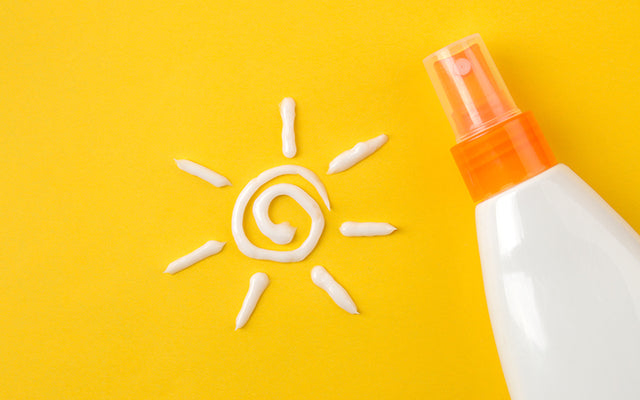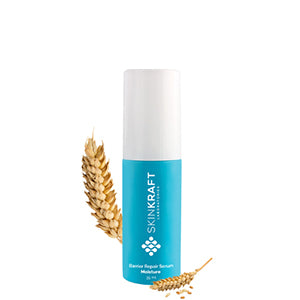Did you know that sunscreens have two major variants? Yes, these are mineral sunscreens and chemical sunscreens. While both serve the common purpose of protecting you from UV rays, they work very differently.
Here, we discuss the differences between mineral sunscreen and chemical sunscreen and help you decide which one is right for your skin type!
Highlights:
What Is Mineral Sunscreen?
Mineral sunscreen is the primary type of sunscreen that contains minerals as its active ingredients. Mineral sunscreen is also referred to as physical sunscreen. It provides a physical barrier against the UV rays and protects your skin. This type of sunscreen does not get absorbed into your skin, and may lead to clogged skin pores.
What Is Chemical Sunscreen?
As the name suggests, chemical sunscreens contain a lot of chemical ingredients in them. The function of chemical sunscreen is directed by its chemical structure. This structure is a combination of carbonyl group ingredients and aromatic compounds. It turns the harmful rays into heat. [1]
Chemical sunscreens have some harmful effects due to the various chemical ingredients present in it. It may affect your skin after long term usage. According to The Food & Drugs Administration, certain ingredients found in chemical sunscreen are not safe. [2]
What Is The Difference Between Mineral Sunscreen & Chemical Sunscreen?
|
Mineral Sunscreen |
Chemical Sunscreen |
|
|
Ingredients |
Zinc oxide and titanium dioxide are the most common ingredients used in a mineral sunscreen. |
Oxybenzone, Octinoxate, Avobenzone, Homosalate, Octisalate, Octocrylene, Padimate O, Sulisobenzone etc. [3] |
|
How Does It Work? |
Mineral sunscreen sits on top of your skin and works as a protective barrier. It does not let the UVA and UVB ray enter your skin. The barrier deflects the sun rays, so they bounce back from your skin. |
Chemical sunscreen gets absorbed into your skin and turns the UVA & UVB rays into heat and later releases them. |
|
Pros |
Ingredients of mineral sunscreen are anti-irritants that work best for sensitive skin. It also prevents damage from free radicals. |
Chemical sunscreen is easy to apply and does not leave any white tint after application. It is usually water resistant |
|
Cons |
Mineral sunscreen is hard to apply as it does not get absorbed into your skin. It may leave white traces after the application. |
Chemical sunscreen has harmful chemical-based ingredients which affect your skin. It can provoke acne breakout, cause allergic reactions and even worsen certain skin conditions. |
|
Safety for Kids |
Since mineral sunscreen does not contain any harmful ingredient, it is considered to be safe for kids. |
Experts suggest avoiding chemical sunscreen for kids. Kids have soft and smooth skin which may not take the harshness of chemicals. |
|
When to use? |
Mineral or physical sunscreen starts working instantly after you apply it to your skin. |
Chemical sunscreen needs 20 to 25 minutes to work post-application. So, you need to wait for that period before going out under the sun. |
 Mineral VS Chemical Sunscreen: Which Is Right For You?
Mineral VS Chemical Sunscreen: Which Is Right For You?
The right kind of sunscreen for you will depend on various factors, the most important being your skin type.
1. Dry Skin
The first priority for people with dry skin is proper hydration. If you have dry skin, opt for a sunscreen that not only offers protection from UV rays but also has some moisturizing elements in it. Mineral sunscreen is the best option for you. Look for a lotion-based mineral sunscreen with SPF between 30 to 50.
2. Normal Skin
People with normal skin do not need to worry much while buying any skincare product. Normal skinned people can opt for any kind of sunscreen they want, irrespective of their gender. But experts suggest it is always better to choose mineral sunscreens to avoid any kind of skin irritation or allergic reactions.
3. Sensitive Skin
Mineral sunscreen is recommended for those with sensitive skin. It contains zinc oxide and titanium dioxide which work as anti-irritants. This guarantees safety for people with sensitive skin. Also, zinc oxide is a great UVA blocker that protects you from harmful sun rays. In case you are using a chemical sunscreen that contains parabens or oxybenzone, it may cause you skin irritation.
4. Oily Skin
When sebaceous glands produce an excessive amount of sebum oil, the skin becomes oily. You would notice a greasy skin surface even after cleaning it with a face wash or cleanser. You need a lightweight and non-greasy sunscreen that perfectly blends with your skin. Most people with oily skin use non-greasy chemical sunscreen that gets absorbed into the skin and does not clog skin pores.
5. Acne-Prone Skin
Acne-prone skin can be extremely frustrating. It takes a lot of effort to choose skincare products for acne-prone skin. If you also have acne-prone skin, choose your sunscreen after a little bit of research. Try to buy mineral sunscreen instead of chemical ones. Also, make sure your sunscreen is non-comedogenic [4], which means it is specifically made to avoid acne.
Wrapping Up
Sunscreen is a must when you go out under the sun. But which sunscreen you choose for your skin also matters a lot. Not every sunscreen is meant for your skin, so choose according to your skin type. People with dry skin or normal skin are recommended to use mineral sunscreen whereas those with oily skin can benefit from chemical sunscreen. You can also choose a combination of both types of sunscreen and get the maximum benefits from it.
Recommended Products
Was this Article helpful?
- Least helpful
- Most helpful










